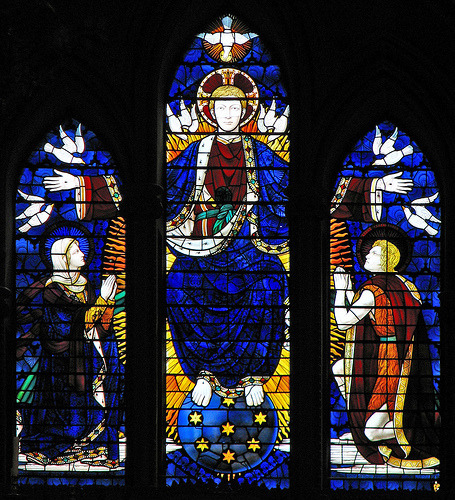HOMILY for 23rd Tue per annum (II)
1 Cor 6:1-11; Ps 149; Luk3 6:12-19

If St Paul were to ask Christians today: “Do you not know that the saints will judge the world?” (1 Cor 6:2); “Do you not know that we are to judge angels?” (1 Cor 6:3); I suspect the answer would be “No”. Indeed, he’d be told that we’re not to be judgemental. “Who am I to judge?” So, what does St Paul mean?
It seems to me that what Paul is objecting to, most of all, is disunity among the Christian community in Corinth, and a public show of disunity in which Christians charged other Christians before a civil and secular court. For him this is scandalous because it offends against the fundamental unity that binds Christians together in Jesus Christ. As he says: “But you were washed, you were sanctified, you were justified in the name of the Lord Jesus Christ and in the Spirit of our God” (1 Cor 6:11). For through the grace of baptism, we have become one with Christ; the Holy Trinity dwells in us, and it is a union that only mortal sin – the sins he lists verses 9 to10 – can disrupt. So, St Paul is expressing here the central mystery of our Faith, that we are called to become partakers in the divine life, one with God through sanctifying grace. And the Holy Eucharist, the sacrament of unity, expresses this holy communion between God and Man. As we pray in the Third Eucharistic Prayer: “Grant that we, who are nourished by the Body and Blood of your Son, and filled with his Holy Spirit, may become one body, one spirit in Christ”.
And the Spirit, St Paul understands, will give those gifts of prudence, wisdom, and right judgement which should enable us to sort out our differences among ourselves. His worry is essentially theological: as we’ve been given the Spirit of truth, why should we need recourse to those who have not received grace through baptism, and who thus do not have these supernatural gifts and Spirit-filled virtues?
It’s St Paul’s ecclesiology, his theological vision of what God’s grace does for us that also underlies what he says about judgement. For it is precisely a graced union with Christ that enables the saints to judge the world and judge the angels, that is, the earthly and heavenly realms and their inhabitants. Such startling powers are only possible because what grace accomplishes for Christ’s saints is also startling: nothing less than union with God, divinization.
As God is the just Judge of all creation who alone can and will judge truly, so the saints in heaven, who are united to the Godhead in love, and so, share in the divine nature, will also share in God’s just judgements; they will rejoice to see divine justice done.